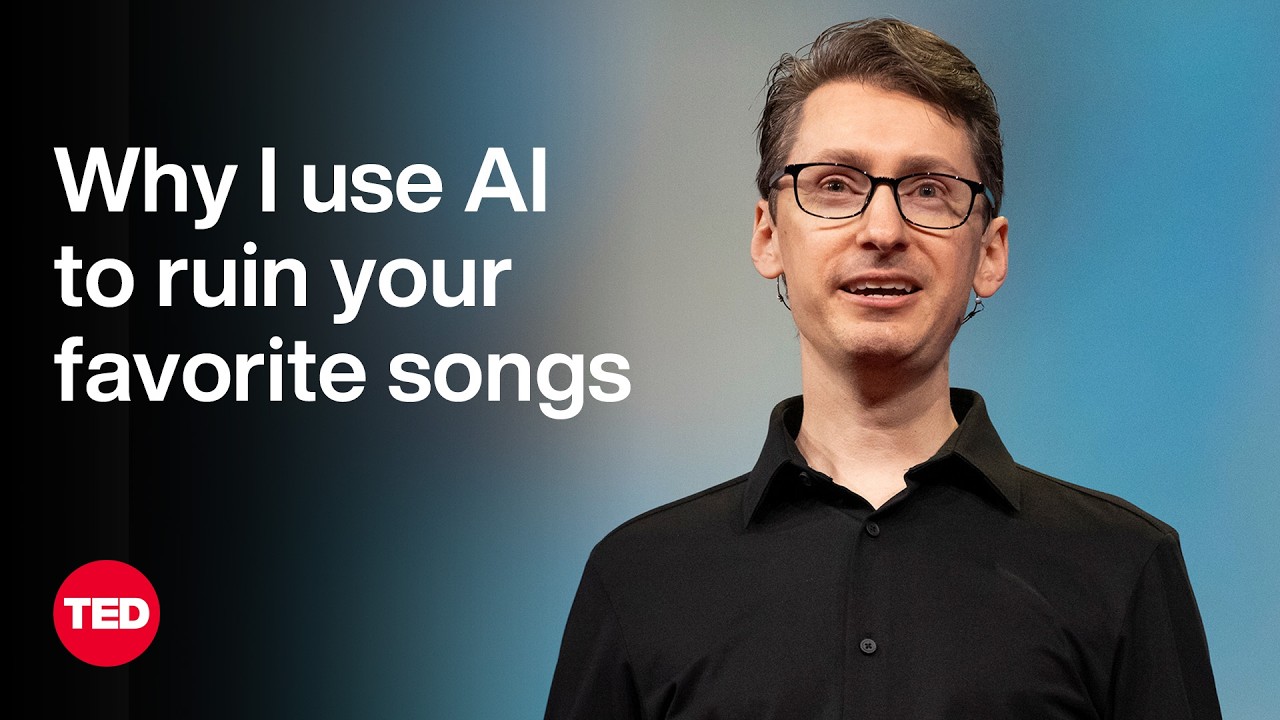In his TED talk, Dustin Ballard explores how AI is transforming music creation by enabling new forms of artistic expression while challenging traditional notions of authenticity and authorship. He argues that rather than ruining music, AI offers innovative tools that musicians can harness to expand creativity and enrich the musical landscape, despite ethical and societal concerns.
In the TED talk “Is AI Ruining Music?” by Dustin Ballard, the speaker explores the evolving relationship between artificial intelligence and music creation. He begins by sharing an intriguing anecdote about David Bowie’s song “Starman,” which he initially claims features a chorus from a 1937 blues song by T-Bone Fletcher. However, he reveals this story was fabricated and that the song was actually created entirely by AI, setting the stage for a deeper discussion about what constitutes “real” music in the age of technology.
Dustin reflects on historical debates about music reproduction, noting that even when the phonograph was invented in the 1800s, people questioned whether mechanically reproduced music was authentic. He draws parallels to today’s concerns about AI-generated music, suggesting that music can indeed be genuine if musicians skillfully harness AI tools. To illustrate this, he shares examples from his own work, including AI-generated covers of popular songs using the voices of legendary artists, demonstrating how AI can creatively reinterpret music.
The speaker also delves into the ethical and artistic questions raised by AI in music. He asks whether AI-created music carries artistic intent, whether it is deceptive, and how it impacts musicians. Dustin highlights the blurred lines between traditional music creation and AI-assisted processes, such as using AI to write lyrics, generate new instrument sounds, or mimic a musician’s style. He emphasizes that these innovations challenge conventional ideas about authorship and authenticity in music.
Dustin further discusses the mixed reactions to AI music, including skepticism from lawmakers and the public. He recounts a U.S. congressional hearing where AI-generated music was played, and a congressman controversially stated that “robots should not have free speech,” illustrating the confusion surrounding AI’s role in creative fields. Despite this, Dustin finds hope in the fact that many artists and audiences are embracing AI as a tool that can enhance creativity rather than replace human artistry.
In conclusion, Dustin Ballard argues that AI is not inherently ruining music but rather opening new possibilities for innovation and expression. He envisions a future where AI helps create new songs, sounds, and styles that we cannot yet imagine. While acknowledging the challenges and ethical dilemmas, he encourages musicians and listeners to explore AI’s potential thoughtfully, suggesting that, like past technological advances, AI could ultimately enrich the musical landscape rather than diminish it.
